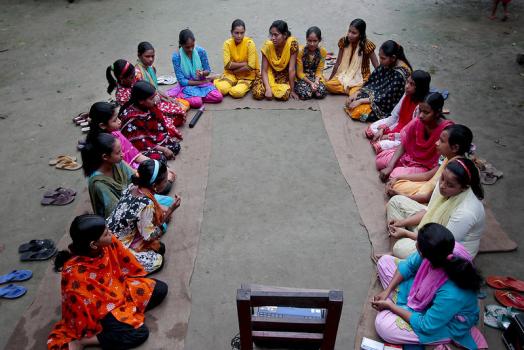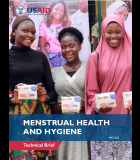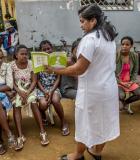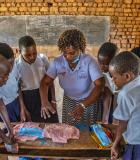Menstrual Hygiene Day 2021

Every May 28, nonprofits, government agencies, the private sector, the media, and individuals come together to celebrate Menstrual Hygiene Day (MH Day) and advocate for the importance of good menstrual hygiene management (MHM). Over 800 million women and girls menstruate every day, yet across the globe they face barriers to properly managing their periods. The COVID-19 pandemic has only exacerbated these barriers.
The social stigmas and taboos surrounding menstruation often prevent women and girls from attending work and school. Even when they do attend while menstruating, the lack of access to menstrual hygiene products, lack of sanitation infrastructure such as private toilets and handwashing facilities, and lack of menstrual hygiene education can prevent women and girls from reaching their full potential in the classroom, in the workplace, and at home.
USAID's work in the menstrual hygiene field includes developing design standards for female-friendly facilities, creating educational resources, promoting the availability of MHM-–related supplies, and destigmatizing menstruation. The provision of adequate and safe sanitation can promote equity and opportunity, which, in turn, contributes to the erosion of long-standing discrimination and societal norms that reinforce traditional roles, prejudices, and expectations. USAID also works with host governments to draft national MHM strategies.
Better WASH and management of water resources means better health, nutrition, opportunity, and dignity for women and girls. Women and girls stand to benefit at higher rates and in unique ways from safe, reliable, and sustainable water security, sanitation, and hygiene. It frees up more of their time for education and employment, reduces their vulnerability to gender-based violence, provides privacy and dignity, enhances women’s and girls’ success, and increases their voice, agency, and economic empowerment.
To learn more about USAID's efforts to help women and girls reach their full potential, check out the resources below:
- How USAID is Helping Improve Menstrual Hygiene Management in the Workplace
- Changing Perceptions Around Menstrual Hygiene
- Menstrual Hygiene Management and Women's Economic Empowerment: A Review of Existing Evidence
- WASH for Women and Girls Fact Sheet
- USAID Water and Development Technical Series: Gender Equality and Female Empowerment in WASH
- Water Currents: Menstrual Hygiene Day 2020





